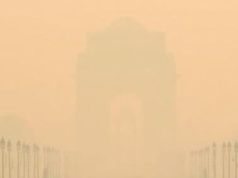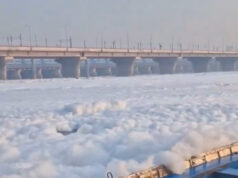GRAP-4: Delhi’s Bold Move to Tackle Toxic Air
The Delhi Traffic Police has intensified its efforts to combat the severe air pollution engulfing the national capital by implementing strict measures under the Graded Response Action Plan (GRAP-4). Starting Monday night, vehicles that do not comply with BS-6 emission norms have been banned from purchasing petrol and diesel in Delhi. This decisive action aims to reduce vehicular emissions, one of the major contributors to Delhi’s hazardous air quality.
Special Police Commissioner (Traffic) Ajay Chaudhary confirmed that letters have been issued to all petrol pump owners across Delhi, instructing them not to provide fuel to non-BS-6 vehicles. Failure to comply will result in legal action. The Deputy Commissioner of Police (New Delhi Range), Dhal Singh, reported that by Tuesday evening, eight petrol pumps in the New Delhi district had already received these instructions, with the rollout extending to other districts.
The Delhi Traffic Police, in collaboration with various departments, has launched comprehensive measures to enforce GRAP-4. Over 50 zonal officers (ZOs) have been deployed to identify and penalize polluting vehicles. These officers, supported by permanent pickets, motorcycle units, and CCTV monitoring, are working tirelessly to ensure compliance. Last time GRAP-4 was implemented, around 350 vehicles without valid pollution certificates were fined daily, and expired vehicles were seized.
What is GRAP-4? And its Importance
GRAP-4 is the highest level of intervention under the Graded Response Action Plan, introduced in 2017 to tackle Delhi’s escalating air pollution. It includes emergency measures such as halting construction activities, banning entry of heavy vehicles, shutting down schools if necessary, and limiting industrial operations. The current implementation focuses heavily on curbing vehicular emissions by restricting fuel supply to non-BS-6 vehicles and enhancing on-road enforcement.
GRAP-4 serves as a critical mechanism to combat the health hazards posed by extreme air pollution. According to studies, prolonged exposure to PM2.5 and PM10, prevalent in Delhi’s air during winter, can lead to respiratory issues, cardiovascular diseases, and reduced lung function. By targeting vehicular emissions, a major source of pollution, GRAP-4 aims to provide immediate relief to residents and reduce the overall pollution load.
Delhi’s Pollution Crisis
Delhi consistently ranks among the most polluted cities in the world. Factors contributing to this crisis include vehicular emissions, industrial activities, construction dust, and stubble burning in neighboring states. The Air Quality Index (AQI) often reaches “severe” levels during winter, making outdoor activities hazardous. The reimplementation of GRAP-4 highlights the urgency of addressing this recurring issue.
In addition to restricting fuel supply, Delhi Traffic Police has:
– Deployed special teams and 88 Prakhar vans to monitor and penalize polluting vehicles.
– Set up pickets at city borders to stop heavy vehicles from entering Delhi.
– Provided police stations with challan-issuing machines to ensure swift action against violators.
– Increased on-ground inspections by senior officers at borders and high-traffic areas.
Broader Implications
The enforcement of GRAP-4 underscores the need for long-term solutions to Delhi’s pollution crisis. Experts advocate for a transition to cleaner fuels, expansion of public transport, and stricter regulations on industrial emissions. Public awareness campaigns and active citizen participation are also essential to achieving sustainable air quality improvements.
As Delhi grapples with suffocating pollution levels, the stringent measures under GRAP-4 serve as a necessary step toward safeguarding public health and restoring environmental balance.





